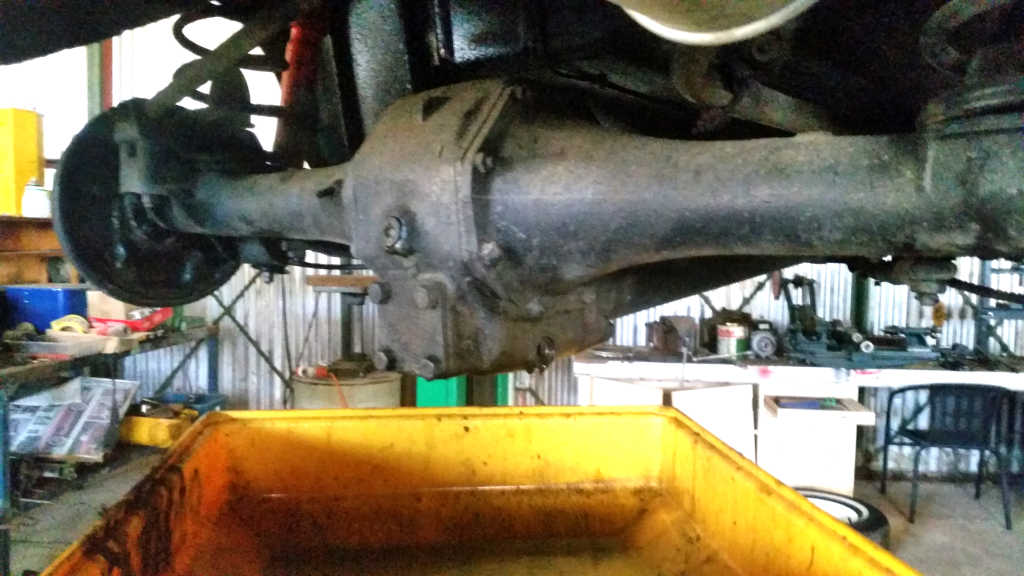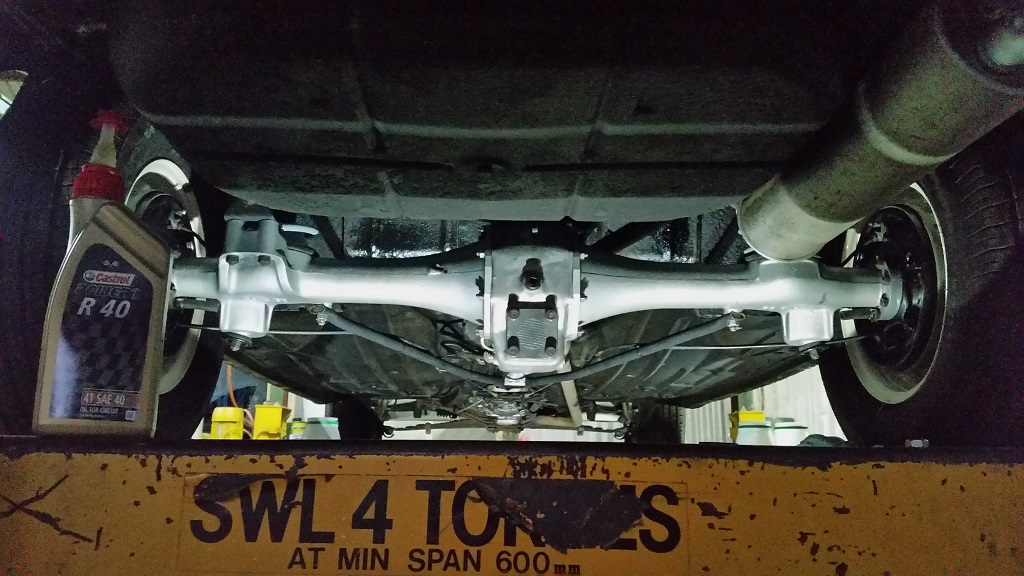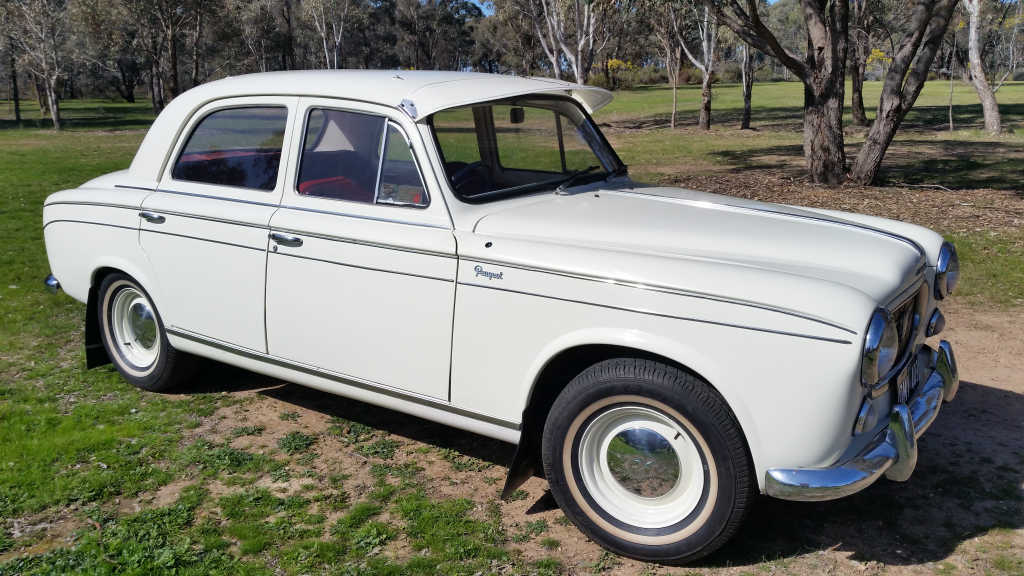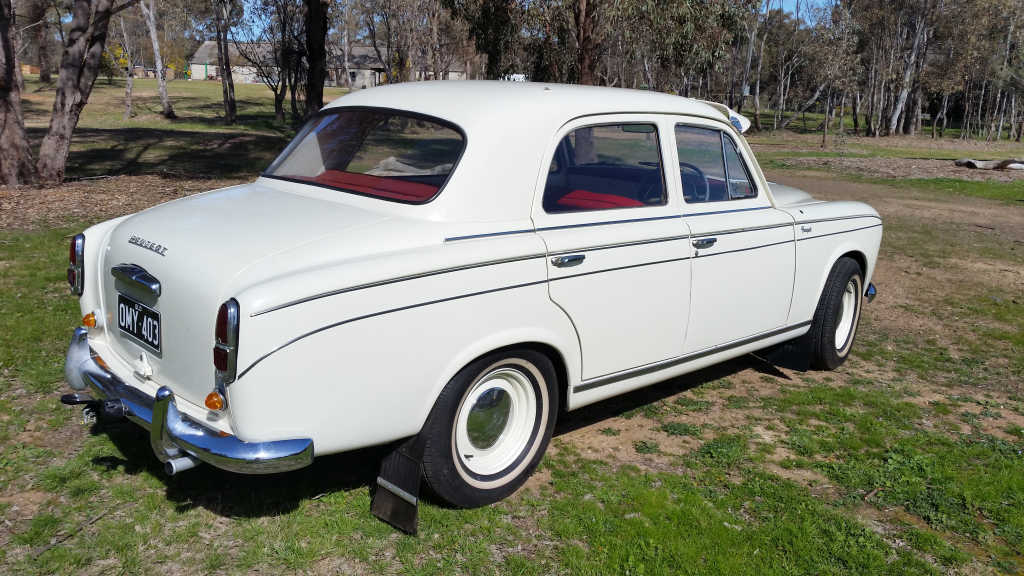1964 PEUGEOT 403B
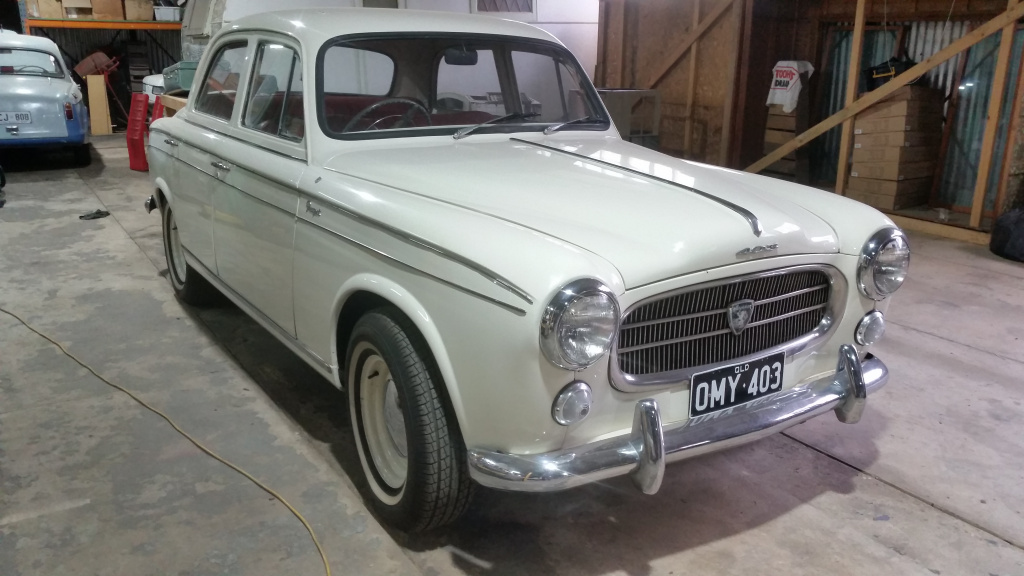
I've been a fan of pre-505 Peugeots for a long
time, and treasure the 504 GL that's
part of my garage. I'd been tempted by several 203s, 403s and 404s over
the decades, but never found one that ticked the boxes for me. Until,
that is, I put feelers out on Facebook groups for owners to submit
alternative cars to a Fiat 1100D I was contemplating a the time.
One response, from the Sunshine Coast in
Queensland, was this 403B that had been owned long term by its
enthusiastic owner. After a lot of communication back and forth, and
many detailed photographs, I took the plunge and drove the trusty Isuzu
beavertail on the almost 4000km return trip to pick up the car.
It had been suggested by the seller that I drive
the car back, but I am glad I didn't do that, as many issues presented
themselves once I got the car home, taken for a short initial test
drive, and then put on the hoist for some urgent work to contaminated,
grabby brakes, and to investigate noisy differential bearings (a rebuild
will be in order soon, but the thick, creamy, gooey mess that finally
oozed from the final drive when drained was the worst I've seen in 50
years or working on cars).
Many other aspects needed to be attended to
straight away, and even things like maladjusted tappets (insufficient
clearance starting to cause burnt valves), leaky tappet cover gasket,
badly fitted headlights with chrome trim rings not screwed on and myriad
other things would have made the long drive very testing for both car
and driver. Cosseting it on the back of the Isuzu was definitely the
right call!
That said, the 403B will be a much-loved family
member once the issues are all sorted. It's a beautifully straight and
largely rust-free body, and the original upholstery still looks lovely,
with just the right amount of ageing. The widened rims make it much
easier to purchase tyres when the time comes, and it drives and steers
surprisingly well on them. It's lovely to have another Pininfarina
designed Pug! The search for a nice 203 and 404 continues...
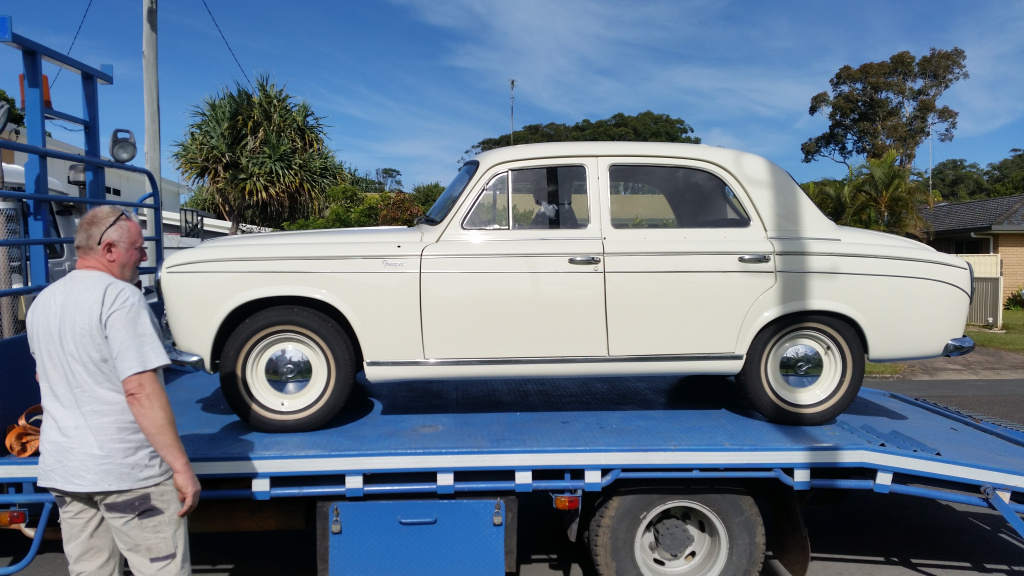
↑After a long drive
from Victoria to Queensland, the Peugeot is loaded onto the trusty truck
for its trip to its new home./p>
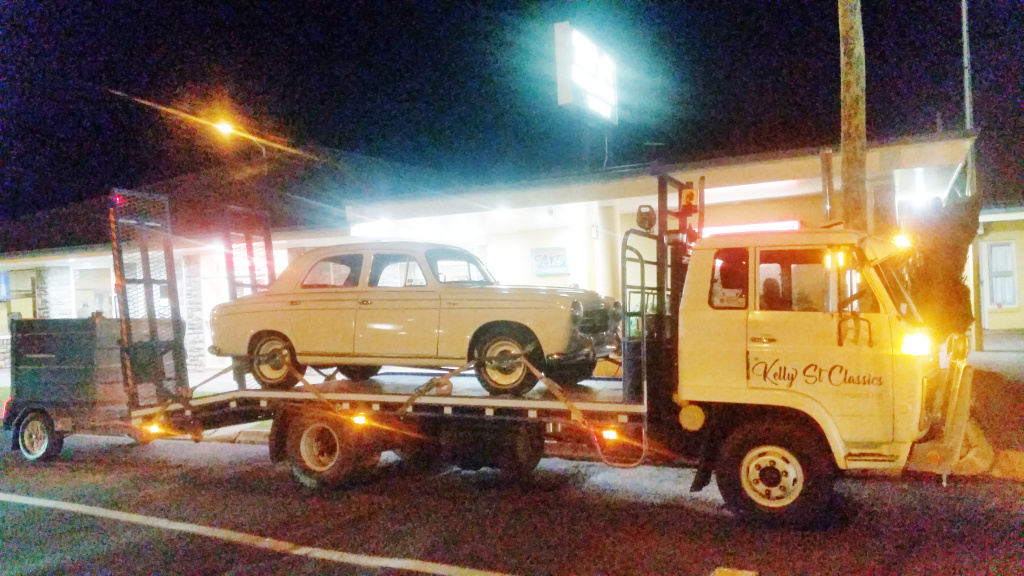
↑The first of several
overnight stops on the return journey. This one in Warwick, Qld.
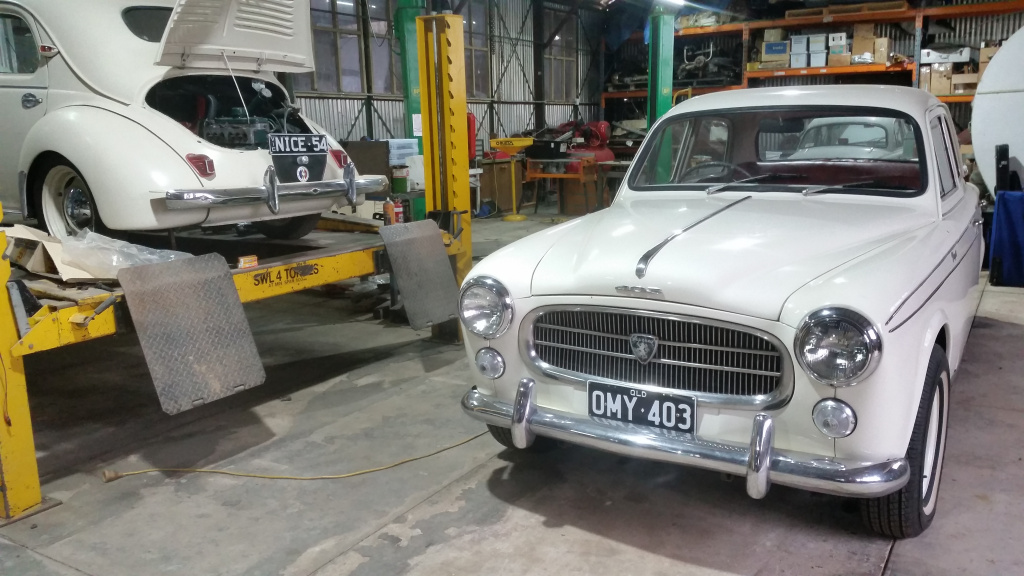
↑The Peugeot meets
another French garagemate in the workshop.
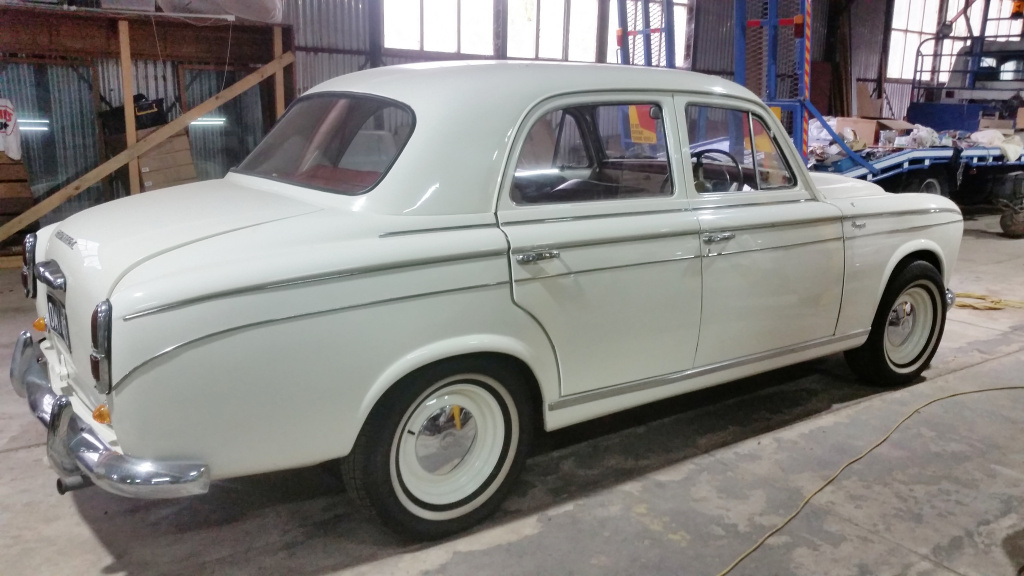
↑Safely in its new
home, but plenty of disappointments to show themselves and require
attention...
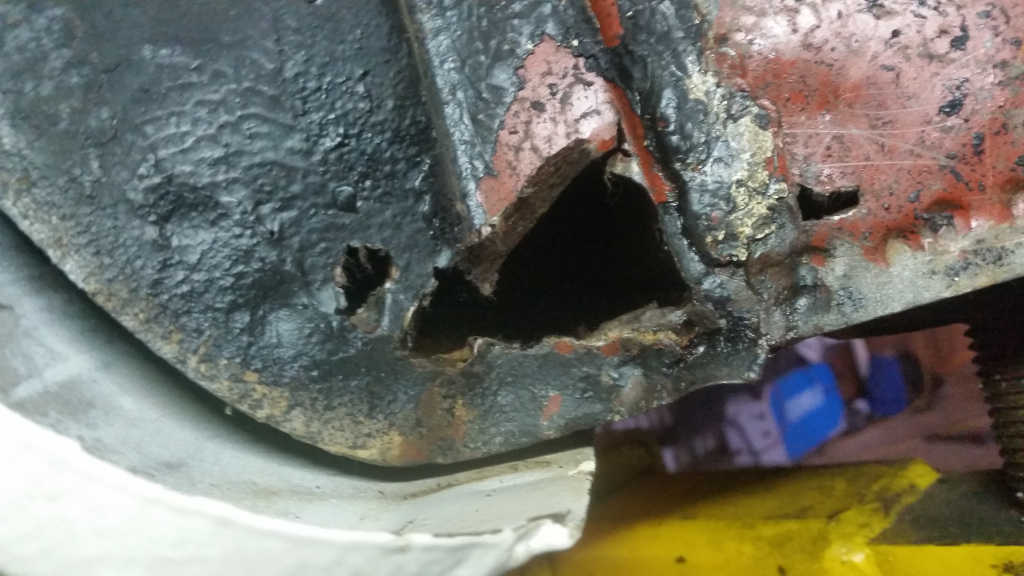
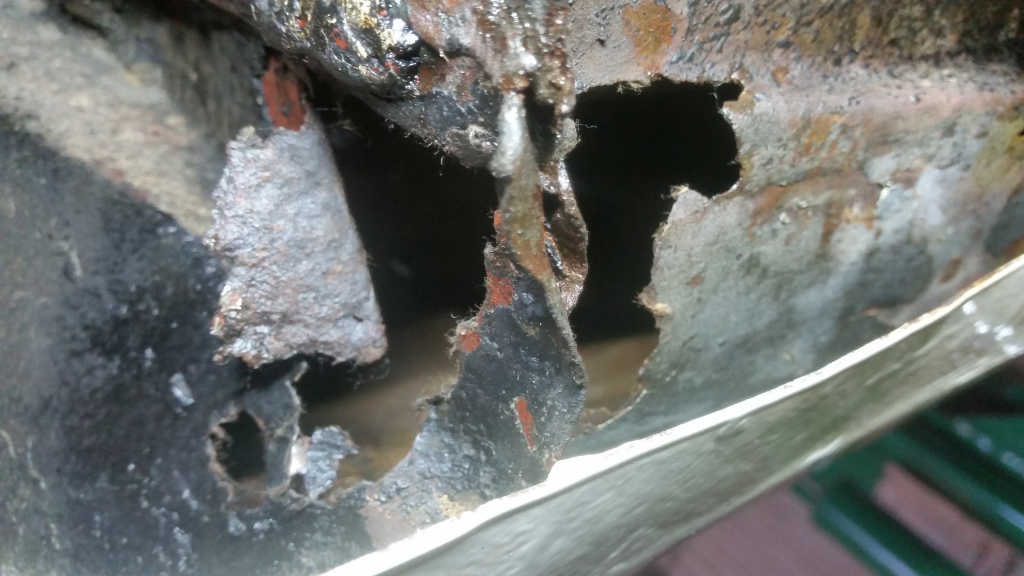 ↑The car had been described as
being built from a completely rust-free body, but this was slightly
untrue, as a view from underneath quickly showed.
↑The car had been described as
being built from a completely rust-free body, but this was slightly
untrue, as a view from underneath quickly showed.These areas
were cut out and MIG welded. Still, for a 403 body, it was pretty
good.
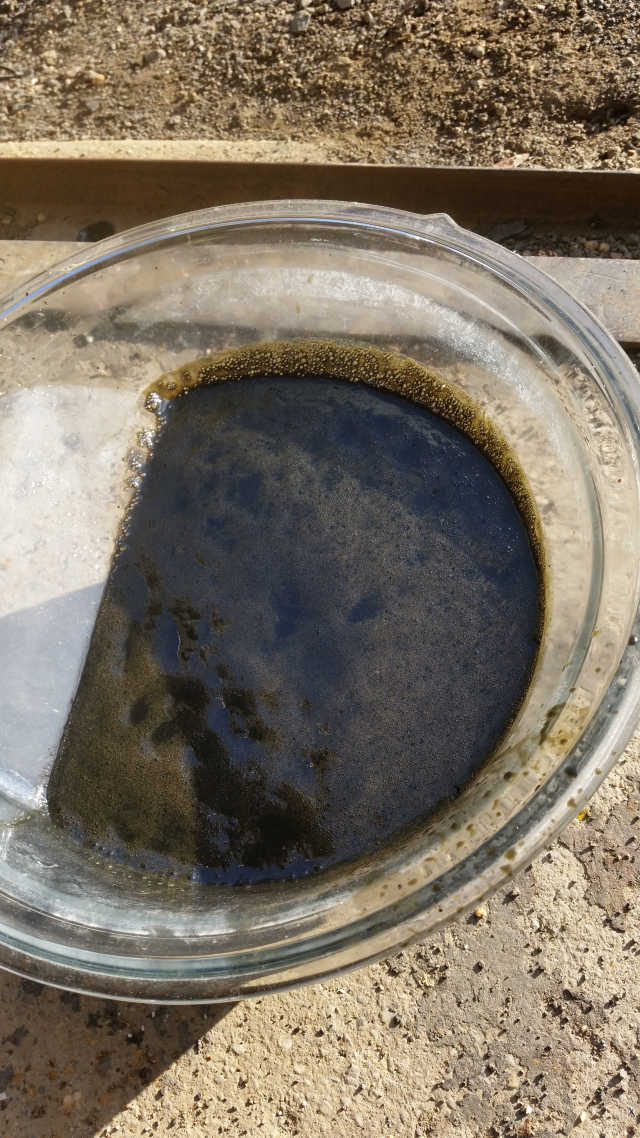
↑A
short test drive before putting it on the hoist showed that the diff
was quite noisy. Not a whine, but lots of 'white noise' that indicated
to me the worm bearings were probably suspect. Draining the oil was
quite depressing, as the most horrible, thick (treacle-like), emulsion
slowly oozed from the drain. Who knows what 'lubricants' had been put
in there, along with obvious water ingress at some stage.
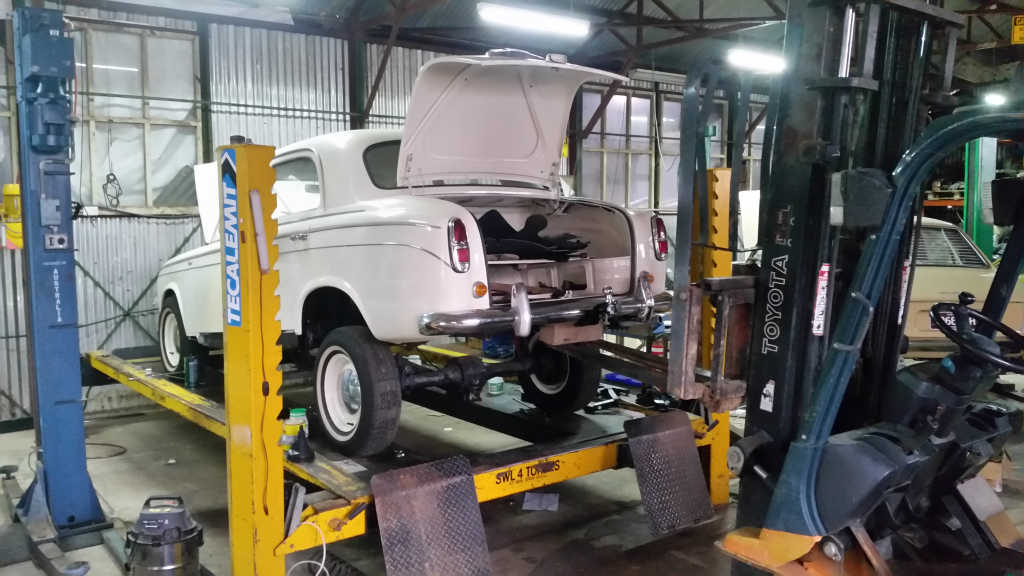
↑So, the just-fitted
towbar proved perfect for lifting the rear of the car, using the forklift, high
enough - while still on the hoist - to remove the back axle as a unit...
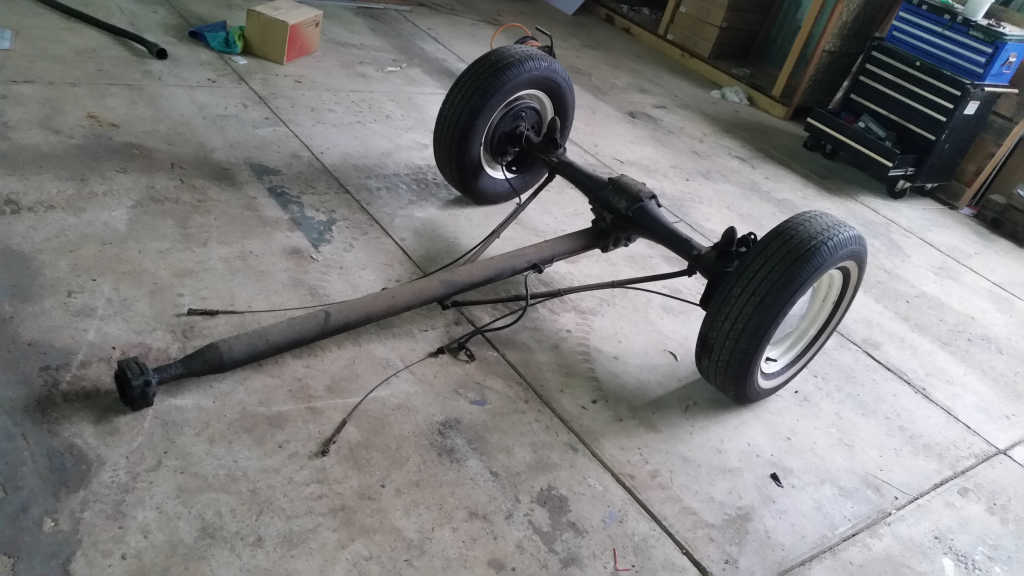
↑...and roll it out onto
the workshop floor.
The
axle was a complete mess. The torque tube was full of a mixture of
grease, gearbox oil and water I took days to completely disassemble,
and, using strong solvents, a pressure washer, and lots of elbow grease,
finally have it all stripped down to assess what what going on.
Strangely, no photos were taken during this time!
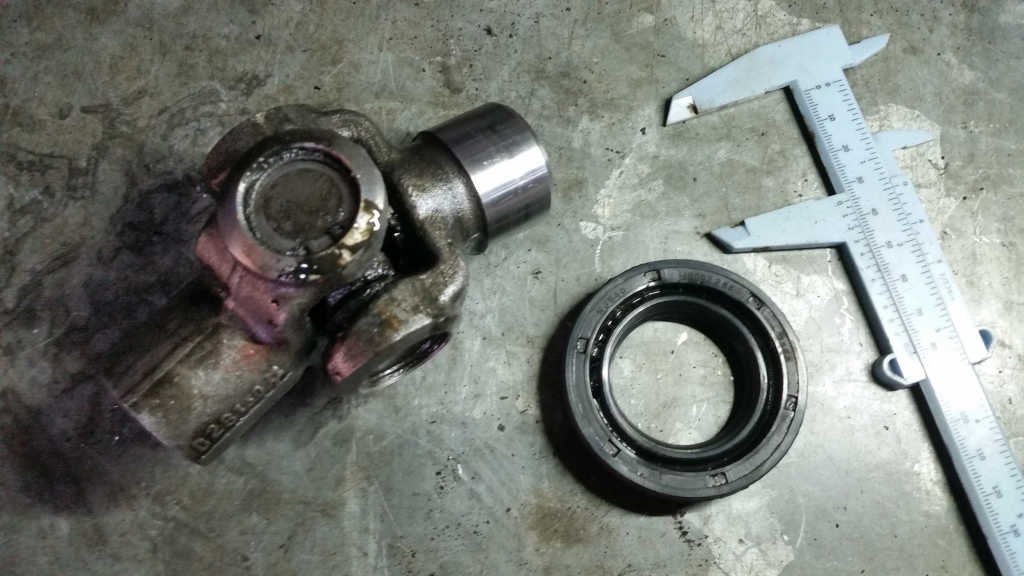
↑The
rear gearbox seal, extricated once the front universal was removed,
was virtually new, but incorrectly fitted, and the wrong size! The
seal number clearly showed it was incorrect, as the inner lip had an
internal diameter 1 mm LARGER than the shaft it was supposed to seal.
Therefore, the gearbox simply leaked profusely, down through the
torque tube (with all its grease for the centre bearing) and then
entered the differential via the completely hardened and worn worm
seal to simply fill the differential with the completely wrong oil.
The levels got so high (along with water that must have entered via
the breathers in floodwater or creek crossings) that the muck was
oozing all over the newly replaced rear brake shoes, rendering them
useless.
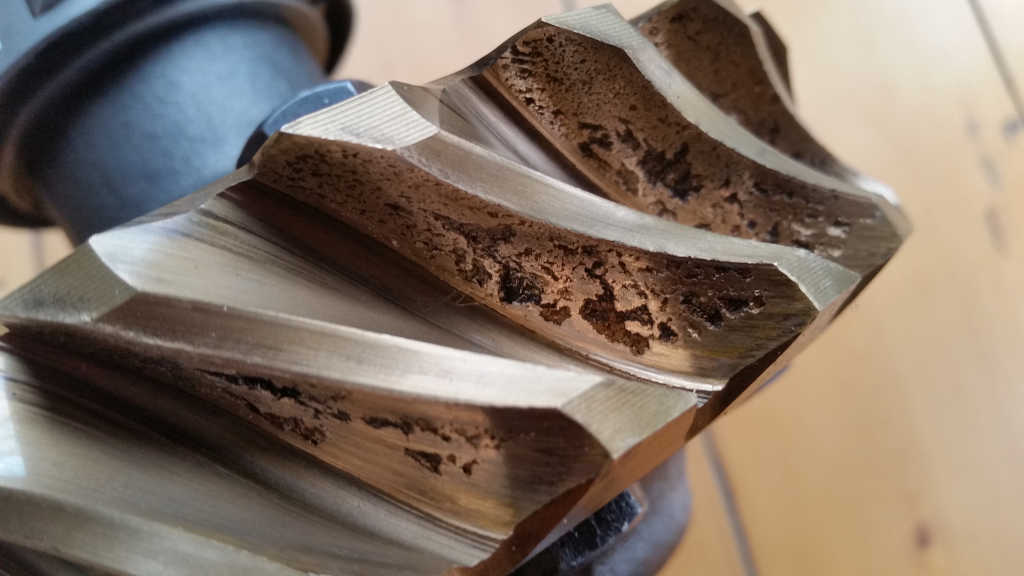
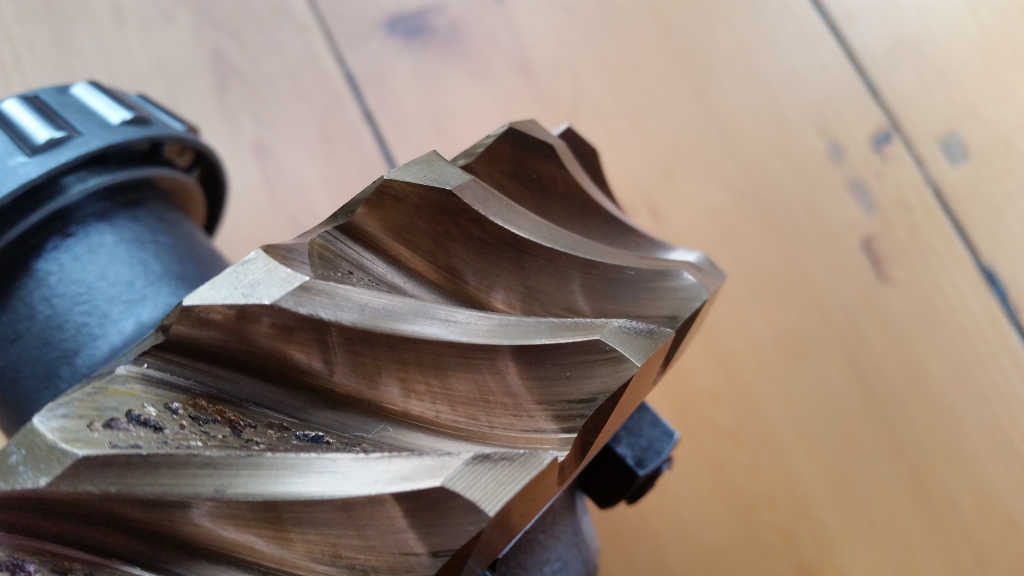
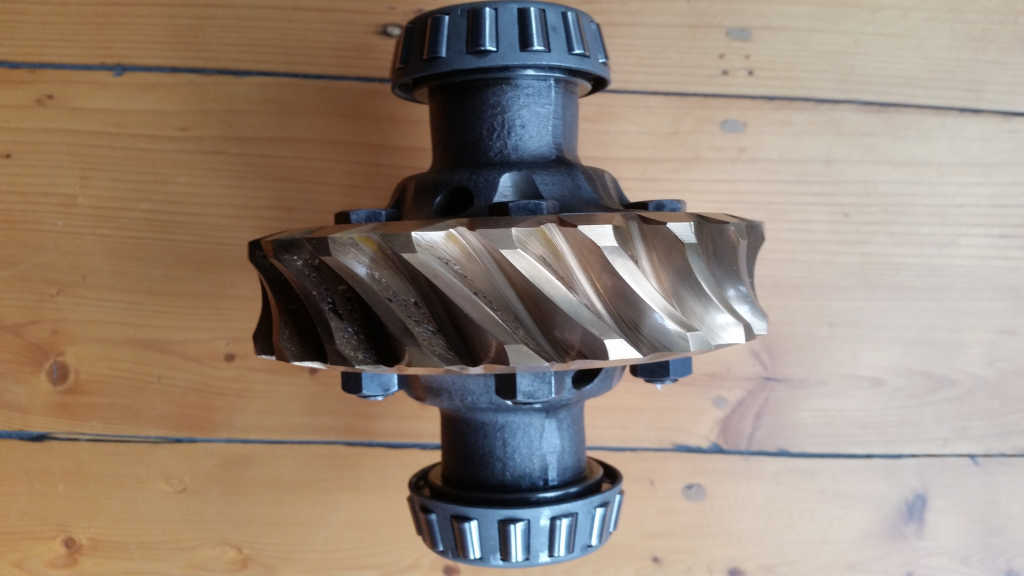
↑The
crownwheel confirmed the claim that the car's mechanicals had done
very little mileage since new, as there was very little actual wear on
the teeth. However, the severe pitting on the drive side showed
exactly what the sulphur in the incorrect lubricant does to the bronze
gears; extreme chemical attack and subsequent cavitation. The bottom
of the diff housing had lots of small particles of bronze, all from
the pitted gears. After much measuring, consultation with various
experts, and my own research, I decided that the crown wheel would be
pressed back into service, but only after rebuilding the internals
(new thrust washers, bearings, and high-tensile bolts), and I also
decided, against the advice of some, to reverse the crown wheel so
fresh bronze faces would be the drive side, and the pitted areas on
the lighter-loaded overrun side. I decided this because the gears are
symmetrical, and with very accurate shimming and setting of position
(relative to the worm) and preload, there should be no reason for the
diff to whine or hum, as it had never done so before. The new bearings
- particularly on the worm, but I replaced them all just to be safe -
should address the 'white noise' I'd heard from the diff previously.
 ↑The worm, once cleaned up, was
pristine, so I simply pressed new bearings onto it.
↑The worm, once cleaned up, was
pristine, so I simply pressed new bearings onto it.
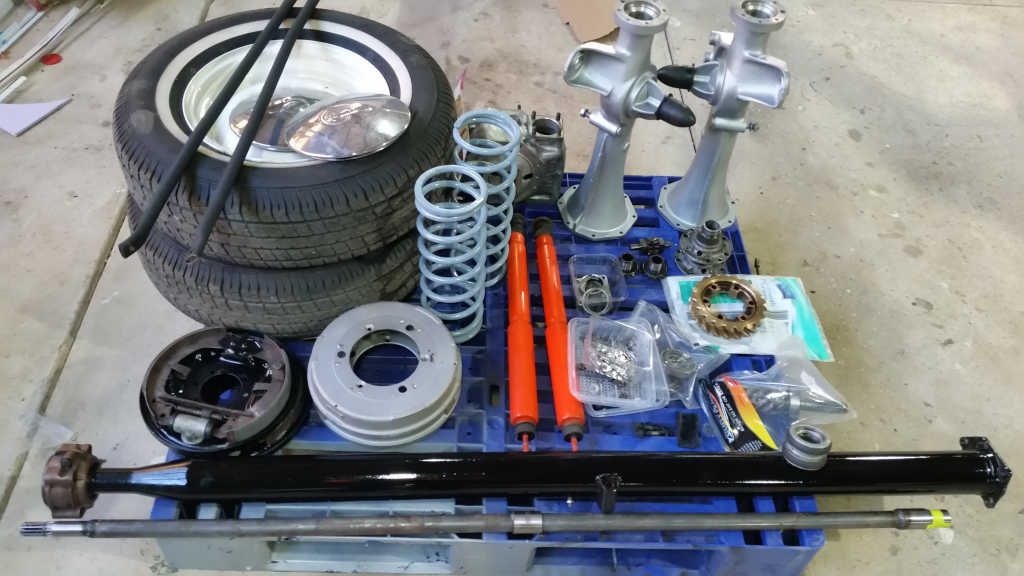 ↑Here are the rear axle
components all cleaned, restored or replaces as necessary, and ready for
reassembly.
↑Here are the rear axle
components all cleaned, restored or replaces as necessary, and ready for
reassembly.
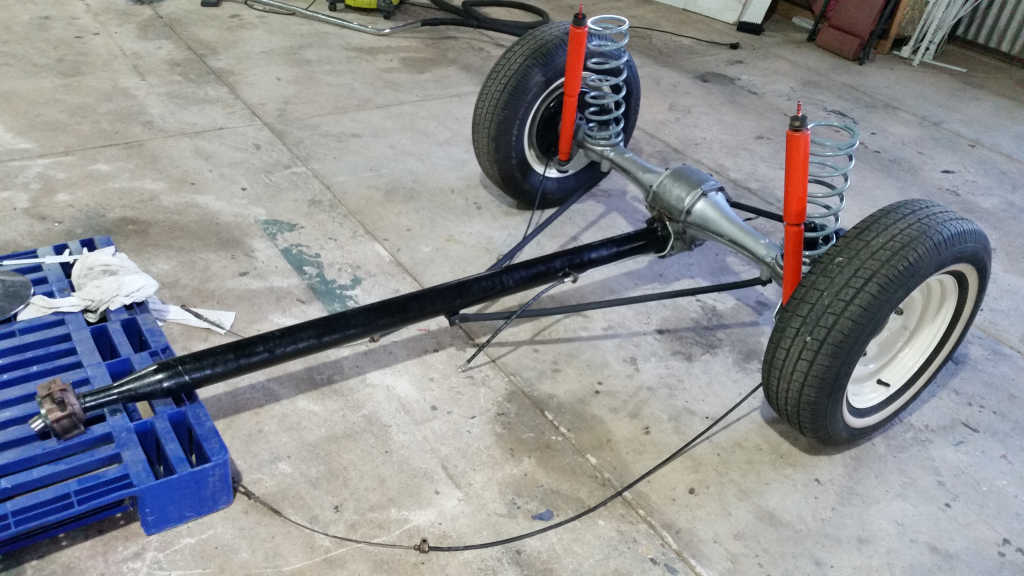 ↑Reassembled and ready for
installation.
↑Reassembled and ready for
installation.
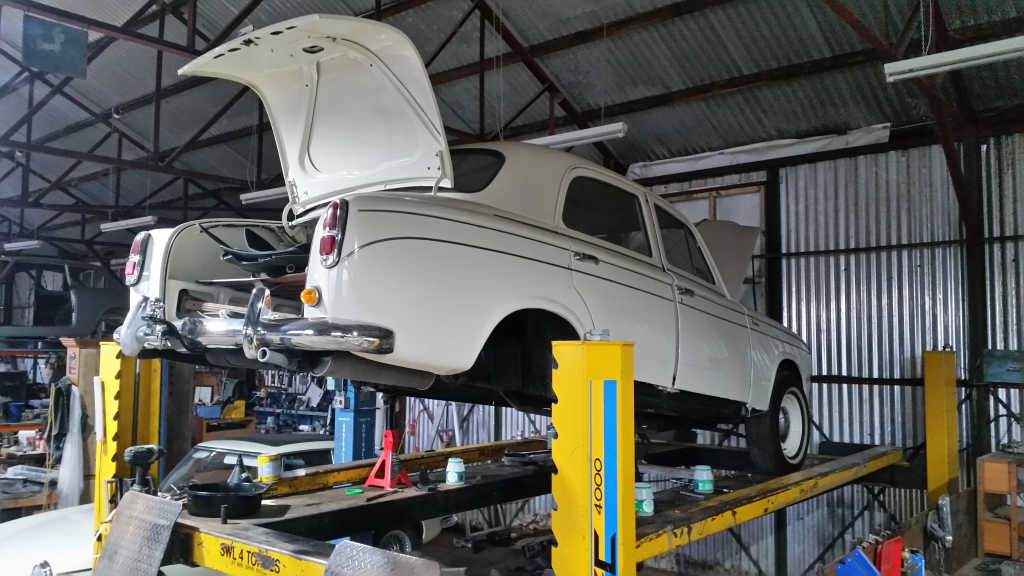 ↑Ready and waiting!
↑Ready and waiting!
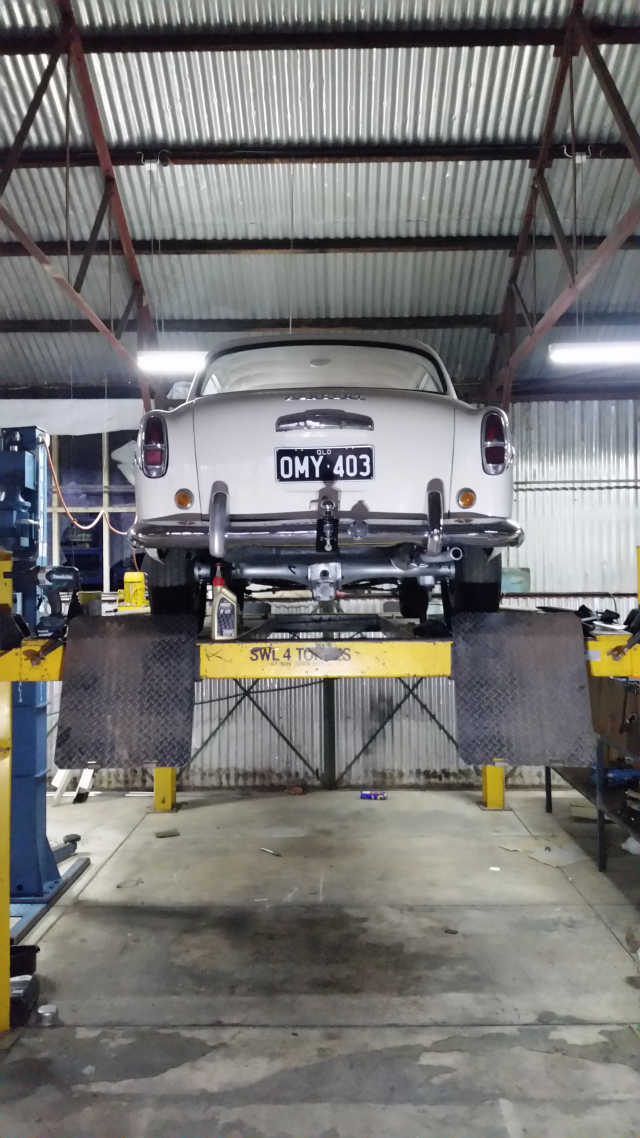 ↑Ready to go, and filled with
the correct Castor-based Castrol R40 oil.
↑Ready to go, and filled with
the correct Castor-based Castrol R40 oil.
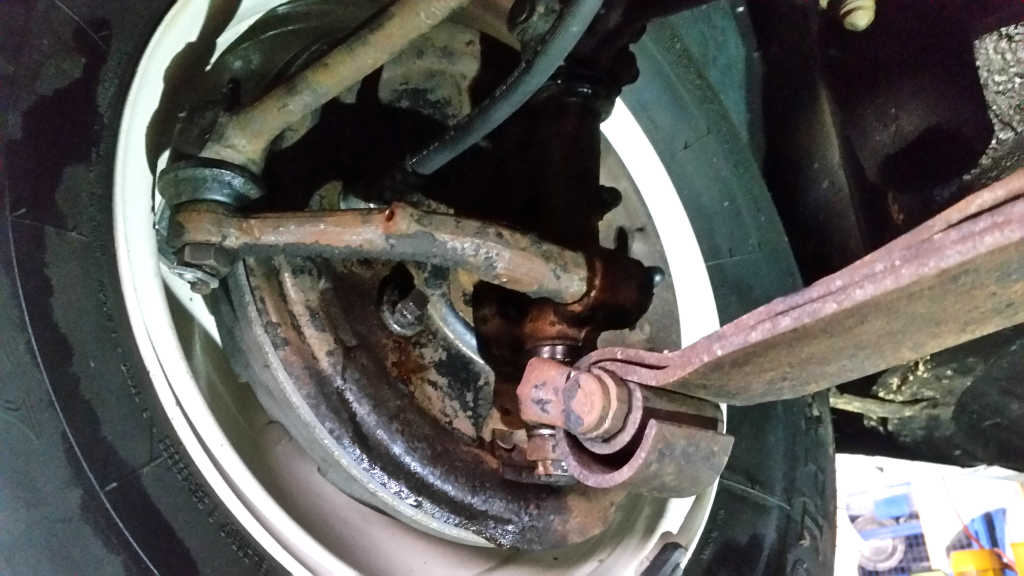
↑Not
only the rear brakes, recently replaced by the previous owner, had to
have new linings installed. Leaky brakes all round had saturated the
front linings as well, as can be seen even looking under the car at
the damp sections at the bottom of the backing plate. I rebuilt all
the slave cylinders, installed brand new brake shoes all around, and
replaced some corroded brake lines with new ones I made up myself in
the workshop, all correctly flared. This car should never have
recently passed its Queensland registration inspection as it was.
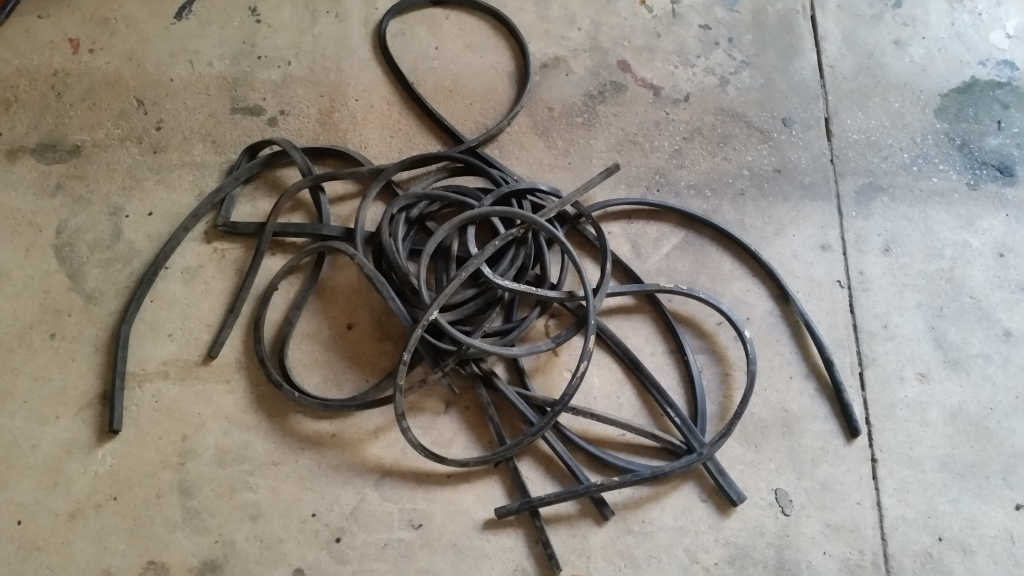 ↑When I purchased the car, I was
pleased to see it had been fitted with all new body rubbers. However, I
was dismayed to notice that when water was sprayed on the car it sprayed
straight into the interior; none of the rubbers was correct, or sealing
in any way. I had to remove them all (they'd been horribly stuck on, so
it was hours and hours of painstaking work trying not to damage the
bodywork or paintwork underneath), and throw them all away and start
again.
↑When I purchased the car, I was
pleased to see it had been fitted with all new body rubbers. However, I
was dismayed to notice that when water was sprayed on the car it sprayed
straight into the interior; none of the rubbers was correct, or sealing
in any way. I had to remove them all (they'd been horribly stuck on, so
it was hours and hours of painstaking work trying not to damage the
bodywork or paintwork underneath), and throw them all away and start
again.
The
car is now nice and watertight, and free of wind (and diff) noise!
↑Now
reassembled, and fitted with its towbar, mudflaps and original front
sunvisor, the car drives as well as it looks!







